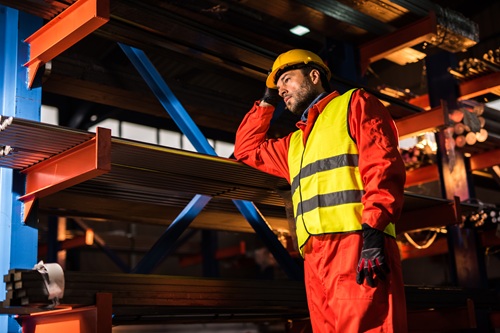Younger workers feel they’ve been ‘cast adrift’ by their employer in the shift to home and hybrid working, says a new survey with a third of 18 to 24-year-olds saying home working leaves them feeling demotivated.
News
A third of 18 to 24-year-olds say working from home leaves them feeling demotivated
More than two-fifths (43 per cent) of the 1,044 young workers polled by Opinion Matters for IOSH fear fewer face-to-face interactions are restricting their personal and professional development.
Even for those who attend the office every day, workplace relationships appear to have suffered. Of this group, 39 per cent reported that the shift towards hybrid and remote working has made connecting with colleagues harder.
 A quarter of young workers feel cut off from their workplace community, according to an IOSH survey on the impact of home and hybrid working
A quarter of young workers feel cut off from their workplace community, according to an IOSH survey on the impact of home and hybrid working
And one in six young workers (17 per cent) say their wellbeing has worsened with more than a quarter (28 per cent) feeling cut off from their workplace community.
IOSH President Kelly Nicoll said businesses must better engage their newest workers, so they can reach their individual potential and help businesses thrive.
“Managers need to build in more structured supervision time and regular check-ins with young workers and hybrid workers than only having contact once a month.”
“They need to make room for daily informal catchups and also set weekly and monthly one-to-one sessions to cover performance and address wider issues such as health, safety and wellbeing, as well as mentoring, coaching and career development,” Kelly added.
Indeed, when asked what would help younger workers succeed, structured check-ins with managers topped the list (45 per cent), followed by wellbeing and mental health support (42 per cent).
Young people also want clearer career development pathways (40 per cent) and more face-to-face collaboration (35 per cent).
Commenting on the findings, writer and broadcaster Natasha Devon, said that employers should take retaining younger workers seriously in order to remain competitive in a global economy. “Understanding that the world of work looks and feels very different for Gen Z than it did when older generations entered it, plus the fact they might be missing privileges we took for granted, is a good starting point,” she said.
Find the survey here
NEWS

Manufacturers call for full implementation of Mayfield Review to tackle UK sickness crisis
By Belinda Liversedge on 26 February 2026
Trends in wellbeing and long-term ill health are “worsening with the size of the problem growing, not shrinking,” the UK’s manufacturing association Make UK has warned.

Employers unprepared for menopause duties, research suggests
By Belinda Liversedge on 24 February 2026
Most employers remain uncertain about duties coming into force to support female workers undergoing the menopause, a new poll suggests.

Ramadan: what employers should know about supporting their workforce
By Belinda Liversedge on 18 February 2026
As Ramadan begins this week, UNISON has reminded employers to think about reasonable adjustments for their Muslim workforce’s religious observance such as fasting, prayers, and flexible schedules.



